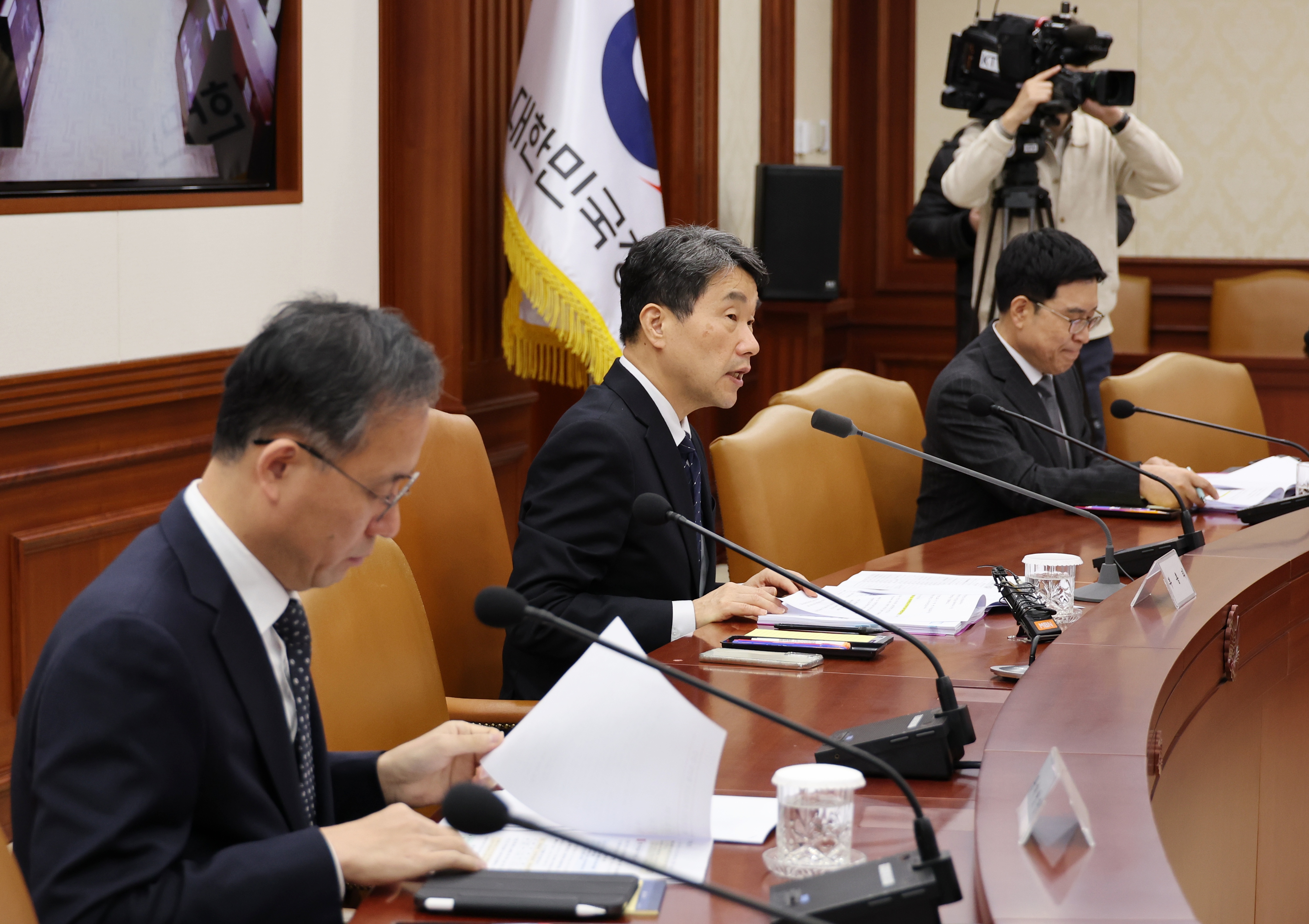
Deputy Prime Minister and Minister of Education Lee Ju-Ho (second from left) on Nov. 25 gives a speech at the ninth ministerial meeting on social affairs at Government Complex-Seoul in Seoul’s Jongno-gu District. (Ministry of Education)
By Charles Audouin
A government plan seeks to strategically expand Korean-language education at elementary, middle and high schools abroad amid higher demand for Korean and Han Kang winning the Nobel Prize in Literature.
The Ministry of Education on Nov. 25 said its ninth ministerial meeting on social affairs at Government Complex-Seoul proposed methods to stimulate such education at such schools abroad.
First, a new organization will analyze regular education systems and demand for Korean-language education and devise strategies to spread Korean at schools in each nation.
Customized strategies will reflect the development cycle of such education abroad and develop training programs for teachers in each country. At bilateral summits, the government will suggest exchange and cooperation in activities like teacher exchanges and vocational training.
More native speakers of Korean will be sent abroad as teachers and expanded training to develop instructors in each country will ensure sufficient support in regions with demand for Korean at schools. Exchange programs will also strengthen global capabilities in the field and training in methods of Korean-language education.
Development of teaching materials will also reflect regional traits such as culture, language and society.
The plan is to expand digital curriculum content such as “Korean for Everyone” and utilize video materials of Hallyu (Korean Wave) celebrities in school education content through public and private cooperation.
In 2021, the International Korean Education Foundation concluded a business agreement with the talent management agency Hybe to use content featuring the company’s star act BTS.
Other plans include enlargement of the scale of the Test of Proficiency in Korean and promotion of a new digital platform to allow taking the test online. To allow home-based testing, functions by stage will be developed using artificial intelligence such as automatic question generation, grading and proctoring.
In 1999, the ministry helped set up Korean-language courses at schools in the U.S. and has since provided related support like subsidizing operating fees of the classes and dispatching teachers to schools in countries with demand for the language.
As of last year, 2,154 schools in 47 nations offered Korean-language education.
caudouin@korea.kr























